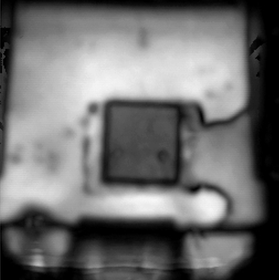Quality filtering of acquired raw leads! Predicting genes from draft genome sequences *Case study collection available.
From the Ocean Research Institute, we received new marine proteobacteria from the Deep Sea and Crustal Biosphere Research Division, and we would like to introduce the results of our analysis. Using a next-generation sequencer (MiSeq), we performed sequencing analysis and obtained paired-end reads. After quality filtering the raw reads, we conducted assembly and further predicted genes from the draft genome sequence. 【Case Summary】 ■ Raw Reads: 7.3M paired-end reads (2x300bp) ■ Annotation Data - Number of Genes: 2,417 - rRNA: 6 - tRNA: 49 *For more details, please refer to the PDF document or feel free to contact us.
Inquire About This Product
basic information
【Other Case Summary】 ■Draft Genome Sequence ・Contig: 70 ・Scaffold: 70 ・N50 [bp]: 105,204 ・Longest [bp]: 249,769 ・Total [bp]: 2,500,556 ・GC%: 48.7 *For more details, please refer to the PDF document or feel free to contact us.
Price range
Delivery Time
Applications/Examples of results
For more details, please refer to the PDF document or feel free to contact us.
catalog(3)
Download All CatalogsCompany information
In recent years, advancements in molecular biology have led to remarkable progress in research such as the determination of the complete genome sequences of organisms and subsequent gene function analysis. Along with these technological advancements, molecular biological techniques such as nucleotide sequence analysis, real-time PCR, and DNA chips have become widely utilized in the field of food analysis. Since its establishment in 2001, Fasmak Co., Ltd. has been developing technologies for the "Japanese Standard Analysis Method" for genetically modified foods and food allergens in collaboration with related agencies of the Ministry of Agriculture, Forestry and Fisheries and the Ministry of Health, Labour and Welfare. The developed testing technologies are provided not only in Japan but also in the United States, China, and other countries. Additionally, Fasmak has been actively engaged in international standardization activities for "food inspection methods using molecular biological techniques" since its establishment, and its technical capabilities are internationally recognized. Furthermore, in partnership with Eurofins Scientific, one of the world's largest testing companies, Fasmak is advancing the introduction of the high technical capabilities possessed by the Eurofins Group. Moving forward, Fasmak will continue to provide world-class new testing technologies to everyone.



![[Case Study Collection - Free Download] Next-Generation Sequencing Analysis](https://image.mono.ipros.com/public/catalog/image/01/10e/615576/IPROS36810353806721836024.jpeg?w=120&h=170)




![[Next-Generation Sequencing Analysis Case] Genotyping Analysis](https://image.mono.ipros.com/public/product/image/1d5/2000603363/IPROS58314770441313934737.png?w=280&h=280)

![[Next-Generation Sequencing Analysis Case] 12S Amplicon Analysis](https://image.mono.ipros.com/public/product/image/151/2000603367/IPROS16731533265082123741.png?w=280&h=280)



![[Analysis Case Study] Observation of Adhesion State Through Metal Plates Using Ultrasonic Microscopy](https://image.mono.ipros.com/public/product/image/367300/IPROS2705829217984245675.png?w=280&h=280)
